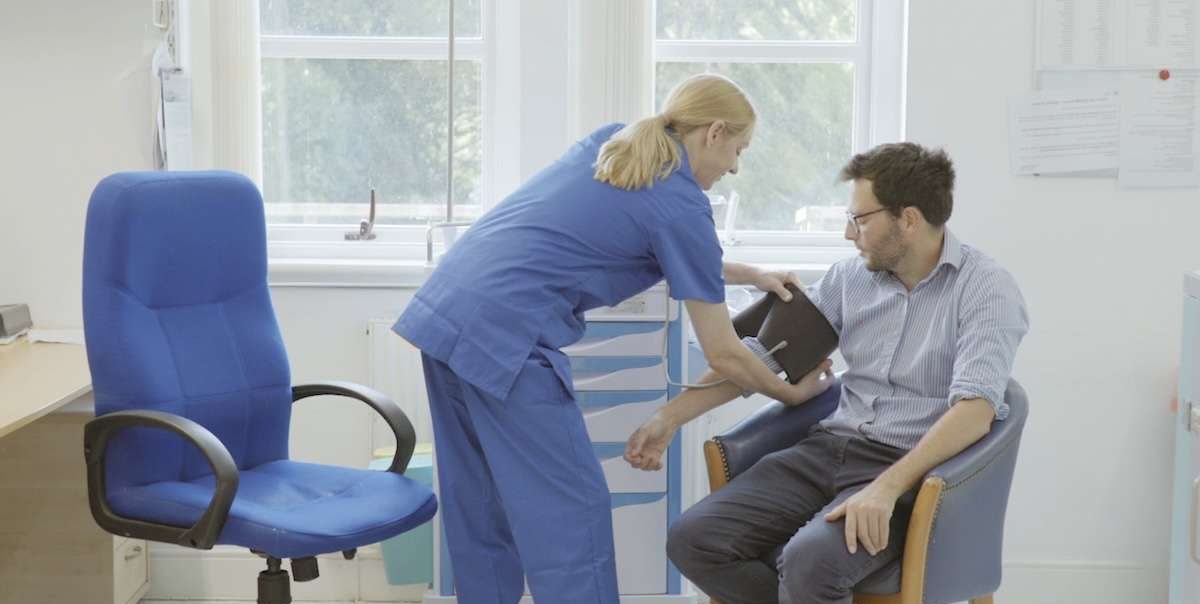
Residential Morphine Detox Treatment
Castle Craig provides medically managed morphine detox within the private setting of our residential rehab centre in the Scottish Borders. At Castle Craig, we take a patient-focused approach, combining fully accredited medical experience and expertise with personalised care to support a morphine rehab treatment plan. Surrounded by beautiful countryside, our peaceful setting can enhance the rehabilitation process, allowing you to relax and focus on recovery.
This article will explore key aspects of a medical detox from morphine, including how long withdrawal symptoms may last, the various stages of detox and what medications may be used in the process. Whether you’re searching for information on detoxing from morphine, understanding the symptoms, or seeking a medically managed detox, we aim to answer your concerns. To learn more about Castle Craig’s approach to morphine detox and how it can help, we encourage you to get in touch on 01721 546 263.
What is Morphine Detoxification?
Morphine detoxification is the process of removing morphine from your body while addressing the physical and psychological effects of withdrawal. This is often the first step in recovery from morphine dependency and involves managing symptoms such as restlessness, anxiety, depression, intense cravings and sleep difficulties.
The duration and experience of detox from morphine can vary depending on the severity of the dependency and individual health factors. Withdrawal can be challenging without expert care. Seeking the support and guidance of medical professionals is highly recommended to ensure you remain safe and supported throughout the detox process.

Start Your Recovery at a Residential Rehab Today
What is a Medically Managed Morphine Detox?
A medically managed detox for morphine is a process overseen by experienced medical professionals to keep you as safe and as comfortable as possible. It aims to monitor and manage any withdrawal symptoms with appropriate treatments, minimising any associated risks and reassuring you throughout the process.
A morphine detox managed by medical professionals will include optimised medical care with full monitoring of physical and psychological symptoms and interventions if necessary. The use of medications may also be used if necessary to relieve withdrawal discomfort. The top priority is to make sure you are safe during your body’s detox process from morphine.
Difference Between Medically Managed Morphine Detox and Medically Supervised Morphine Detox
Medically managed morphine detox provides expert care and overall comprehensive treatment throughout the detoxification process. It makes safety the priority while addressing morphine withdrawal symptoms, offering tailored support at every stage. Medically supervised morphine detox, on the other hand, may provide less intensive monitoring with fewer therapeutic interventions.
A medical morphine detox provides constant professional observation and proven evidence-based therapies to encourage stability and recovery. This carefully designed approach manages the physical challenges of morphine withdrawal while also concentrating on mental wellbeing, providing a solid base for continued recovery from dependency.
Free Morphine Addiction Assessment
At Castle Craig, we provide free drug addiction assessments to help you take the first step towards recovery. This initial assessment allows our team to understand your situation, identify your challenges, and discuss how we can support you in overcoming dependency safely and effectively.
Following your free assessment, we can develop a tailored residential treatment plan designed to meet your specific needs. Our medically managed approach ensures that every aspect of your treatment prioritises your safety, health, and long-term recovery. Call us today on 01721 546 263 to begin your journey towards a healthier future.


Benefits of Inpatient Residential Morphine Detox Treatment
Residential detox care plans offer a wide range of benefits for those seeking recovery. Inpatient rehab facilities provide a safe, structured environment where you can focus on recovery without distractions or external triggers. The combination of medical oversight, mental health care support and a personalised care approach creates an optimal setting for long-term recovery.
By choosing inpatient care, patients gain access to specialised services designed to address the complexities of morphine addiction and withdrawal. Below, we explore specific advantages such as 24/7 medical management, a controlled environment, access to mental health specialists and a seamless transition into aftercare services.
-
24/7 Medical Management for Safe Withdrawal
Round-the-clock medical management provides a critical safeguard during morphine detox. Withdrawal from morphine can bring uncomfortable and, at times, severe symptoms that require professional monitoring. With 24/7 medical care, you can receive consistent attention to minimise risks and manage complications, promoting both safety and comfort throughout the morphine detox process.
Trained medical staff are on hand to administer medications, monitor vital signs and address any issues that arise immediately. This constant oversight offers you a structured level of reassurance, allowing you to focus on your recovery without worrying about your physical well-being.
-
Controlled Environment Reduces Risk of Relapse
An inpatient rehab setting offers a controlled space that removes potential triggers and easy access to substances, significantly lowering the risk of relapse. Without external temptations, you can focus on the detox process itself and build the skills needed for lasting sobriety.
A private residential environment also promotes accountability and progress. Living in a secure, distraction-free setting could improve your chances of staying committed to your treatment plans. The support of peers and professionals who understand the challenges of recovery could also reduce the chance of relapse.
-
Medically Managed Detox to Ease Symptoms
Medically managed detox care plans aim to make withdrawal as comfortable as possible by addressing physical and mental health symptoms. Medical teams could utilise evidence-based treatments to target nausea, anxiety, or muscle pain. With troubling withdrawal symptoms sufficiently alleviated,, you can continue to detox with dignity and minimal discomfort.
A medically managed detox from morphine also means that your progress is closely monitored by healthcare providers who can make interventions as necessary. This proactive approach means that each stage of the detox process is carefully managed, reducing the likelihood of complications.
-
Access to Mental Health and Addiction Specialists
Residential detox care plans provide you with direct access to mental health and addiction specialists. These healthcare professionals provide support that goes beyond physical symptoms, addressing coexisting mental health challenges such as anxiety, depression or trauma. This integrated care approach aims to tackle the root causes of addiction.
Therapists and addiction counsellors work one-on-one with patients to develop coping strategies, build resilience and identify triggers. Group therapy and educational sessions often complement this care, offering a holistic recovery experience that nurtures both physical and psychological recovery.
-
Personalised Detox Plans Tailored to Your Needs
Each patient experiences addiction and recovery differently, so detox plans are custom-designed to meet your particular needs. Medical teams take into account certain factors like your medical history, addiction severity and personal recovery goals. This tailored approach maximises the effectiveness of each detox plan and makes sure you feel fully supported.
Patients benefit from this personalised care as it helps address their unique challenges while setting achievable milestones. By focusing on your health and journey towards sobriety, personalised detox plans provide you with a greater sense of control and trust in the recovery process.
-
Immediate Access to Emergency Care if Needed
Having immediate access to emergency care is a vital component of residential detox care plans. Morphine withdrawal could, in some cases, involve severe complications that require fast intervention. With skilled medical teams on site, you can feel secure knowing that advanced care is always available if required.
This level of preparedness is one of the core benefits of inpatient detox facilities. Swift responses to potential emergencies help maintain the safety and stability of patients, allowing them to progress through treatment with peace of mind.
-
Structured Routine to Support Recovery
Residential detox facilities provide a structured daily schedule designed to ease you into a stable recovery routine. By occupying your time with evidence-based therapy, addiction counselling and health-focused activities, you can develop healthy habits and a sense of purpose, which are key to maintaining long-term sobriety.
This structured routine minimises feelings of doubt or uncertainty, replacing them with a predictable yet supportive framework. By learning life skills and coping mechanisms that extend well beyond detox, you can look to the future to handle challenges more effectively once you leave the facility.
-
Seamless Transition Into Rehab and Aftercare Services
A significant advantage of residential detox is the seamless transition it offers into further stages of recovery from morphine misuse, including morphine rehab and aftercare services. Once detox is complete, you can immediately access therapy programmes, group sessions, or outpatient care, creating continuity in your recovery plan.
This approach maintains the momentum gained during detox from morphine and reinforces the foundations of sober living. Having access to ongoing resources like counselling and aftercare planning enhances the likelihood of sustained success, offering a clear path towards a healthier, drug-free future.
Private Medically Managed Morphine Detox Centre Near Me
Selecting the right private morphine detox centre for your recovery can be a vital decision. At Castle Craig we offer a private, medically managed detox care plan in a peaceful, residential setting. With a focus on confidential evidence-based care and professional guidance, our team is dedicated to helping you begin your recovery from morphine misuse. The following sections detail how we can support your treatment needs.

Contact Castle Craig Residential Detox Centre
Castle Craig is located in the tranquil countryside of West Linton, Edinburgh, United Kingdom, EH46 7DH. The relaxing setting of our detox centre provides a calming and private environment to support recovery. The surrounding natural beauty offers a peaceful escape, allowing you to focus fully on your health and well-being.
Find Us
01721 546 263
info@castlecraig.co.uk
Castle Craig,
West Linton, Edinburgh, United Kingdom, EH46 7DH
Call us today on 01721 546 263 to learn more about our residential detox treatments for morphine misuse. Our dedicated team is here to discuss your needs, answer your questions and guide you towards an ongoing and sustained recovery.
-
How to Find Private Inpatient Morphine Detox Centres Near You
If you’re looking for a private inpatient morphine detox facility, taking the time to find what is available can help you make the right choice. Asking the right questions and preparing for the things you want to know can be of enormous benefit while conducting your online research. Here are some tips to guide your search:
- Search for “Private Morphine Detox Near Me” or Include Your Location: Begin your search online using terms like “private inpatient morphine detox centre near me”, “morphine detox clinic in UK” or “medically managed morphine detox UK”. Adding your location can help to geographically target the search results. You can then find it easier to locate morphine addiction treatment near you.
- Look for Medical Management and 24/7 Support: Try to find out if the private rehab detox facility offers medical management and 24/7 care and support. A medically managed detox provides immediate access to help during withdrawal and reduces the associated risks.
- Read Reviews and Testimonials: Checking online reviews and testimonials is a useful way to gauge other people’s experiences of the treatment facility. These reviews can provide you with a better idea of the detox clinic’s provision of care, success rates and professionalism.
- Consider What’s Included in the Programme: Look into what is offered in a detox and rehab care plan for morphine recovery, such as personalised therapies, aftercare planning and access to support groups. A comprehensive care plan makes sure you have the necessary tools for both detox and long-term rehab recovery.
- Enquire About Costs and Payment Options: Contact the rehab centre to understand the costs involved and available payment plans. Planning the potential financial costs can help provide some reassurance as you move forward with your treatment.
- Check if They Accept Health Insurance: Private health insurance can help cover the costs of treatment at a detox centre. If they can, make sure to confirm whether your policy includes coverage for morphine detox and rehabilitation.
Find Out About Our Residential Morphine Detox Treatment
Castle Craig provides free drug assessments for morphine addiction as part of our admissions process. These confidential assessments offer a supportive starting point for your recovery. Our caring team is ready to listen and guide you through the initial steps toward a healthier and more fulfilling life. Contact us via our secure contact form to begin your path to lasting change.
Following your complimentary assessment, our experienced team develops medically managed detox care plans that meet your specific needs. With a focus on morphine addiction recovery, we use evidence-based approaches and continuous support to help you towards health and sobriety. Call us today on 01721 546 263 to learn how we can help you regain control of your life.
Free Morphine Addiction Assessment
Taking the first step and asking for help can feel daunting, but our team is here to assist you.
Signs, Symptoms and Effects of Morphine Withdrawal & Detoxification
Morphine (opioid) withdrawal can manifest in various ways, and recognising the signs is a key step in getting help. Below are some common signs, symptoms, and effects of morphine withdrawal and detoxification, but it’s important to remember this is not a complete list.
-
Early Signs of Morphine Withdrawal
Early morphine withdrawal symptoms could begin within 6-12 hours of the last dose of morphine. During this time, the body starts adjusting to the absence of opioids. Some of the initial signs may include:
- Anxiety or restlessness: You may feel unsettled or overly nervous, with an inability to relax or focus.
- Sweating more than usual: Excessive sweating can occur as the body reacts to the absence of morphine.
- Yawning frequently: Yawning is a frequent early sign of withdrawal, often accompanied by general tiredness.
- Runny nose or watery eyes: These symptoms are common as the body begins detoxification.
- Trouble sleeping or disrupted sleep: Many people struggle with sleeplessness or broken sleep patterns during early withdrawal.
-
Moderate to Severe Symptoms of Morphine Withdrawal Syndrome
Moderate to severe opioid withdrawal symptoms can emerge 24-48 hours after the last dose of morphine and may be more intense. These symptoms include:
- Intense drug cravings: A strong, often overwhelming desire to use morphine can occur during this stage.
- Nausea, vomiting or diarrhoea: The digestive system often reacts strongly during withdrawal.
- Abdominal cramps or stomach pain: You might experience discomfort or pain in the abdominal area.
- Muscle aches or joint pain: Pain in muscles and joints can be widespread and persistent.
- Rapid heartbeat and increased blood pressure: These physical effects are common as the body adjusts to the removal of morphine.
-
Psychological Effects of Morphine Withdrawal
Psychological symptoms of morphine withdrawal tend to develop alongside physical reactions. These may last longer depending on personal circumstances. Common side effects include:
- Low mood or depression: Individuals could experience feelings of sadness or hopelessness during withdrawal.
- Irritability or agitation: Heightened frustration or short tempers can sometimes be associated with morphine withdrawal.
- Emotional sensitivity or mood swings: Strong or unpredictable emotions can occur as the brain adjusts.
- Trouble concentrating or mental fog: Cognitive function may feel impaired, making it hard to focus or think clearly.
- Feelings of hopelessness or despair: Low moods can be an intensely challenging part of withdrawal for some.
-
Physical Signs and Symptoms During Morphine Detoxification
Physical side effects of morphine withdrawal often persist throughout the detoxification process. The following symptoms could be present as your body adjusts to the absence of morphine.
- Chills or goosebumps: You may experience sudden chills, accompanied by goosebumps, even in warm environments during detox from morphine.
- Runny nose: Morphine detox can sometimes mimic cold-like symptoms, with a runny nose being a common physical reaction.
- Dilated pupils: One noticeable change during withdrawal is when the centre of your eyes becomes larger than usual. This is often a visible effect of morphine withdrawal.
- Headaches: Persistent headaches may occur, potentially worsened by the stress of withdrawal and dehydration during this time.
- Fatigue or weakness: Feeling unusually tired or physically weak is a frequent reaction as your body rests and begins to recover without morphine.
-
Long-Term Effects Without Proper Morphine Detox Support
Without appropriate medical management during the detox process, long-term complications could develop. Not having the right medical management can make recovery during morphine detox more challenging.
- Chronic anxiety or depression: Mental distress, including feelings of sadness, anxiety and disconnection, may become more pronounced without structured detox care.
- Persistent cravings and relapse risk: A lack of professional support for the intense cravings for morphine that may appear during detox increases the risk of returning to the drug.
- Sleep disturbance: Long-term impacts on sleep patterns can lead to insomnia or poor quality rest over time.
- Emotional instability: Morphine withdrawal without consistent medical management can make it difficult to regulate mood imbalance and achieve stability.
- Difficulty managing pain or stress without substances: Without learning coping methods, dealing with painful or stressful situations without morphine can feel overwhelming and increase the risk of relapse.
The signs, symptoms and effects of withdrawing from morphine highlight the need for clinical support, as detoxification should not be attempted alone. A medically managed detox provides the necessary foundation for a more effective, safer recovery process.

Medications Used for Morphine Detoxification
Medications may or may not be part of a morphine detox programme. Their use depends on an individual’s care needs, medical history and the severity of morphine addiction. Below are some options the treatment specialists may consider prescribing.
- Methadone: Methadone works by easing withdrawal symptoms and reducing cravings. It acts on opioid receptors without creating a euphoric effect, helping support a safer detox process. When used to manage pain or opioid dependence, methadone is effective but poses risks of addiction and serious side effects if misused. It should only be administered under the supervision of a clinical setting.
- Buprenorphine (e.g. Subutex): Buprenorphine activates opioid receptors partially, aiming to provide symptom relief while reducing dependency risks. It could potentially help make the withdrawal from morphine phase more manageable. While buprenorphine is less addictive than many other opioids, misuse can still lead to dependence or withdrawal. Therefore, it should only be used under the guidance of a qualified healthcare professional.
- Lofexidine: Lofexidine is a non-opioid medication used to relieve withdrawal symptoms such as chills, physical discomfort, and sweating during morphine detox.
- Clonidine: Clonidine helps reduce symptoms like agitation, rapid heartbeat, and sweating. It works by calming the nervous system during the detox process.
- Naltrexone (post-detox maintenance): Naltrexone blocks the effects of opioids in the brain, reducing the desire to use morphine after detox is complete.
- Paracetamol (for aches and pains): Paracetamol is used to alleviate common withdrawal-related discomforts, such as headaches, muscle pain, or general aches.
- Loperamide (for diarrhoea): Loperamide helps manage diarrhoea, a common symptom of opioid withdrawal, by slowing bowel movements and improving comfort.
- Antiemetics (e.g. ondansetron for nausea): Antiemetics like ondansetron can relieve nausea and vomiting, improving a patient’s comfort during detox.
- Diazepam (short-term use for anxiety or agitation): Diazepam is sometimes used short-term to manage intense anxiety or agitation during the early stages of withdrawal.
- Multivitamins and electrolyte supplements: These help address nutritional deficiencies and dehydration that can occur during detox, supporting your physical recovery throughout the process.
At Castle Craig, our approach to the use of detox medications is conducted with the highest level of responsibility so that they do not result in a new dependency. We understand that this may be a worry for some patients, and we are here to assure you that morphine detox medicines are prescribed only when clinically necessary and are closely managed under the care of our Consultant Psychiatrist and experienced medical staff.
Our goal is to alleviate withdrawal symptoms safely while focusing on your overall recovery and the goal of abstinence. By using evidence-based protocols and regularly assessing your progress, we only use detox medications as a short-term tool to support your transition into sobriety, always prioritising your long-term health, well-being and abstinence.

Contact Castle Craig Today
Contact Castle Craig to learn more about our treatment options, admissions process, and free addiction assessments. Our team is here to answer your questions and help you take the first step toward recovery. Call us on 01721 546 263 or complete our online form here. We are committed to guiding you on your recovery pathway with care and expertise.
Does Health and Medical Insurance Cover Morphine Detoxification Treatment?
Yes, health and medical insurance typically covers morphine detoxification treatment, but the extent of coverage depends on your insurance provider and policy details. It is advisable to contact your provider for a thorough understanding of what is included.
If you are covered, Castle Craig accepts private health and medical insurance. Our team is happy to guide you through the process, helping reduce financial stress and making sure you can focus on your recovery. Call us 01721 546 263 to ask about our morphine detox treatment, how to approach your insurance provider or provide us with your authorisation information today.
How Much Does Residential Morphine Detox Cost?
The cost of morphine detox alone in the UK typically ranges from £1,000-£6,000 for 7–10 days. Detox is often part of a longer treatment programme, including therapy and aftercare, which is not reflected in this cost. For residential detox within a comprehensive plan, prices are generally £650–£1,500 daily, or £4,500–£10,000 weekly.
Opioid rehab costs can vary depending on specific medical circumstances and the length of the treatment care plan. At Castle Craig, we focus on compassionate care while offering clear pricing to support your budget and recovery goals.
Morphine Detox Timeline and How Long It Takes
Morphine detox, if required, can often be the first step in a comprehensive opioid rehab process. While detox addresses the physical withdrawal from morphine, sustainable recovery often requires completing an extended rehab plan with various therapies and treatments. Below are typical timelines associated with morphine detox. However, it is essential that the advice of qualified healthcare professionals at accredited rehab facilities should be followed for the safest and most effective approach.
-
Stage 1: Early Withdrawal Symptoms (6–12 Hours After Last Dose)
Morphine withdrawal symptoms can begin as early as six to twelve hours after your last dose. Early symptoms may include restlessness, excessive sweating and irritability as the body starts adjusting to the absence of the drug.
These initial symptoms may feel uncomfortable but are a sign that the detox process has begun. Medical support during this stage focuses on managing discomfort and providing psychological guidance to reduce anxiety.
-
Stage 2: Peak Morphine Withdrawal Symptoms (24–72 Hours)
Side effects of morphine withdrawal often peak between 24–72 hours. These could include severe muscle aches, nausea, vomiting, diarrhoea and heightened psychological distress like anxiety or depression. Cravings for morphine may also intensify during this stage.
Continued and ongoing medical management is essential during this period to properly monitor morphine withdrawal symptoms and provide relief as needed. Having a professional team at your side means you remain safe and can receive stabilising support throughout this challenging phase.
-
Stage 3: Subsiding Symptoms and Stabilisation (3–7 Days)
By the third day, many morphine (opioid) withdrawal symptoms start to subside. Physical discomfort decreases, and sleep disturbances may improve. Psychological symptoms like anxiety might persist but gradually lessen with time.
Stabilisation at this stage involves gently transitioning patients toward the next phase of recovery. Psychological and nutritional support becomes a focus, helping patients regain strength and readiness for ongoing treatment.

Related Guides on Medically Managed Residential Detox
Detox Centre | Inpatient Detox | Alcohol | Drugs | Cocaine | Heroin | Crystal Meth | Valium | Tramadol | Benzodiazepines | Xanax | Codeine | Opioid | Ecstasy | Morphine |
Can you Detox from Morphine at Home?
Detoxing from morphine at home can pose significant risks, as withdrawal symptoms may become severe and difficult to manage without professional care. A residential setting offers 24-hour medical supervision for safety and comfort.
For personalised advice on the best option for your morphine detox recovery, call Castle Craig on 01721 546 263 to speak with our experienced team. We are here to provide guidance and recommend a safe, effective path to sobriety customised to your particular needs. Your wellbeing is our priority, and help is just a call away.
Inpatient Medically Managed Morphine Detox Treatment Admissions Process
Our morphine detox support plan is designed around your specific needs. We aim to provide a safe, supportive environment that helps you begin the recovery process successfully. Below is an overview of our admissions process:
- Make an Initial Enquiry to Begin the Morphine Detox Process: Contact us via phone or online to discuss your situation with our admissions team. We will offer guidance on how to proceed.
- Undergo a Confidential Pre-Admission Medical and Substance Use Assessment: Our team will conduct a detailed assessment to understand your medical history, drug use, and any co-occurring conditions.
- Personalised Detox Plan and Treatment Recommendation: Based on the assessment, our professionals will recommend a detox plan that focuses on your safety and recovery goals.
- Book and Confirm Your Inpatient Morphine Detox Admission Date: Once agreed, we’ll confirm your admission date and provide preparation guidance for a smooth entry.
- Arrival and Medical Intake at the Detox Centre: On arrival, you’ll undergo a thorough medical evaluation and your morphine detox process will begin with professional care.
Your well-being is at the heart of everything we do at Castle Craig. If you have any questions or would like help with beginning your morphine rehab admissions process, don’t hesitate to get in touch with us.
Questions About Detox for Morphine?
Contact us to discuss your treatment needs with a licensed clinician.
Find Out About Our Residential Drug Detox Treatment
Castle Craig offers free residential addiction assessments to help you start your recovery. Our compassionate team is available to discuss your needs and guide you toward the best treatment options for morphine detox.
We can develop a treatment plan to fit your circumstances and offer a clear understanding of costs for residential rehab. Call us on 01721 546 263 and begin your path to lasting recovery today.
Free & Confidential Assessment
Compassionate, expertly delivered evidence-based practices and a patient-centred approach are at the heart of our treatment model. Request a call-back from one of our professionals on any day of the week.
-
Statistics on Morphine in the UK
- Opioid-related hospitalisations in England increased by 49% from 2008 to 2018.
- Residential rehab programmes have a success rate of over 60% for long-term abstinence.
- 48% of adults in substance misuse treatment in 2022-2023 were treated for issues with opiates, including morphine.
- 46.8% of all drug poisoning deaths during 2022-2023 were confirmed to involve an opiate.
- 8.8% of people aged 16-59 years reported using any drug between 2022-2023, with opiates being a significant contributor to that number.